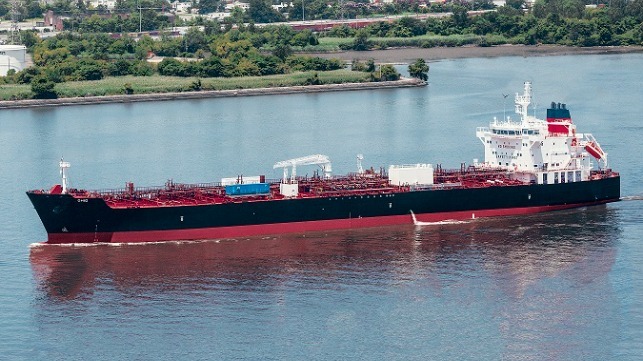Opinion: Jones Act Waivers Should be a Last Resort

Expectations for an active hurricane season and the ransomware hack of the Colonial Pipeline suggest that threats to our infrastructure are expanding and the frequency of crises will grow. America should redouble our focus on preventing such incidents, and on effective response and mitigation efforts when they occur.
This does not mean the government should pull every lever available to it during a crisis. Following the Colonial Pipeline hack the federal government relaxed fuel standards and waived hours of service limits on truckers delivering gasoline. Certain states waived highway weight limits to allow tank trucks to carry more fuel per load. These measures likely helped increase the amount of fuel delivered to gas stations being drained by panic buyers and did so without causing significant harm.
However, soon after the pipeline went down certain oil refining and distribution interests asked the government to waive our domestic shipping law (the Jones Act). The Administration properly refused to issue a broad “blanket” Jones Act waiver. Such a waiver was unnecessary as there were about fifty modern American tankers crewed by American men and women already operating in the region. Some of these vessels could have responded quickly to any urgent fuel resupply needs along the East Coast.
The government nevertheless issued specific Jones Act waivers to two foreign ocean tankers. In several key respects these Jones Act waivers were fundamentally different than the other regulatory actions taken. First, waiving fuel standards and truck driving requirements do not result in substituting foreign workers for American workers. Indeed, emergency or not, we would never consider sidelining American trucking or railroad or pipeline workers so that foreign workers could take over their jobs.
The Jones Act waivers following Hurricane Irma in 2017 had exactly that result. Foreign ships were chartered in to replace American tankers, costing American mariners and their American employers millions. The primary beneficiaries (in addition to foreign shipowners) were oil traders who had sought the waivers so that they could use cheaper foreign ships and pocket the difference in freight costs (a form of “disaster arbitrage”).
Moreover, unlike the trucking hours of service waivers, the Jones Act waivers contributed nothing to the effectiveness of the emergency response. Not a drop of gasoline got to consumers any faster because of these waivers. In fact, one foreign ship using a waiver embarked on a nomad’s voyage from the U.S. Gulf toward Europe, then Canada, and finally back to the United States long after the crisis had ended.
A key factor sometimes overlooked is that American tanker owners lease (charter) their ships to oil companies and other fuel distributors. This puts the fuel distributors in control enabling them to respond or withhold the use of those ships during an emergency. Within hours after the Colonial Pipeline went down nearly all unchartered American tankers on the U.S. East and Gulf Coasts had been snapped up by the oil companies and fuel distributors.
The fastest way to resupply empty tank farms at East Coast ports – faster than chartering a foreign tanker to carry fuel from Gulf refineries – would have been to deploy or redirect an American tanker that was already stationed in the Gulf. However, several American tankers (controlled by the fuel distributors) sat idle, and to the best of our knowledge, not one operating tanker was redirected to any East Coast tank farm potentially affected by the pipeline outage.
As in past emergencies, waiving the Jones Act did not help resolve the Colonial Pipeline crisis. What it did do is undermine American companies and jobs by allowing foreign vessels (that do not have to comply with U.S. labor, tax and other laws) to operate in our home waters. American Maritime has an outstanding reputation for effective emergency response, both domestically and around the world. These waivers discourage investment and recruitment into an American Maritime industry that provides critical support to our national and homeland security, and to the resilience of our infrastructure.
History has shown that it is extremely rare for a Jones Act waiver to contribute to an effective emergency response, while they almost always cause direct or indirect harm. It is important for government decision makers to remember these lessons as new crises emerge.
Michael Roberts is the President of the American Maritime Partnership and Sr. Vice President of Crowley Maritime Corp.
The opinions expressed herein are the author's and not necessarily those of The Maritime Executive.
